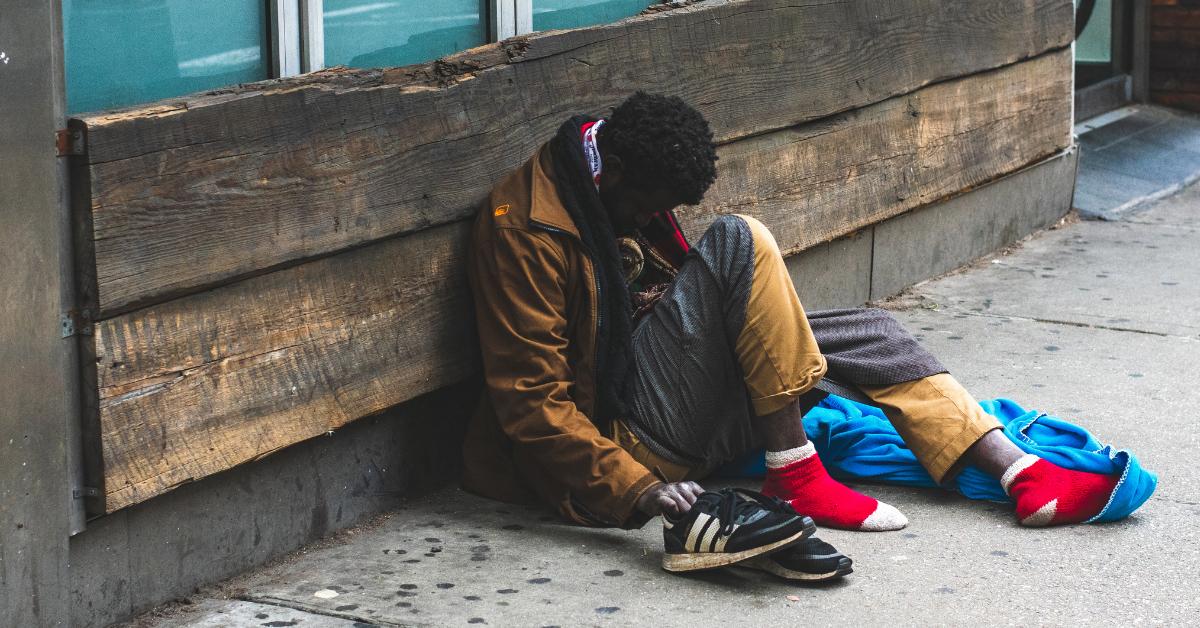Is Becoming Homeless About Addiction?
Is there a link between being homeless and having a drug or alcohol addiction problem? What can be done to prevent this?
Addiction is a devastating existence. Most people who use drugs are trying to self-medicate. Unfortunately, most of the public assumes that drugs are the cause of addiction, but they are not. It is a misunderstanding to believe that a person’s life will improve and they will be healed and different once they no longer ingest drugs.
Addiction happens because of the person’s need to feel better. In perspective, the reason someone uses drugs is the problem, not the drugs. However, the research on addiction does not embrace this fact but does offer advanced insight on how the brain and behaviors are affected by drug use. Abstinence will stop dangerous behaviors and criminal activity, but it does not cure the person’s mind.

Why is Addiction About The Mind?
Addiction centers on the mind and emotions. Even people who do not get addicted to drugs or alcohol use them to change how they feel. The difference is that people with specific histories that include abuse, trauma, and mental health disorders are predisposed to get addicted, and those without these will not.
Science has established the critical role that the brain’s reward center plays in re-enforcing drug use—the reward pathway in the brain signals to use something again if it causes pleasure. Drugs, sugar, sex, money, love, gambling, and other reward-triggering experiences all prompt the person to repeat the rewarding experience, and this is why addiction is a mind-powered disease.
What Do Addiction Experts Say?
The National Institute on Drug Abuse provides cutting edge medically centered insight into addiction. In addition, they re-iterate how drug use will compromise the brain’s normal function.
The path to drug addiction begins with the voluntary act of taking drugs. But over time, a person’s ability to choose not to do so becomes compromised. Seeking and taking the drug becomes compulsive. This is mostly due to the effects of long-term drug exposure on brain function. Addiction affects parts of the brain involved in reward and motivation, learning and memory, and control over behavior. Addiction is a disease that affects both the brain and behavior. (NIDA)
What Factors Predispose Addiction?
One leading determining cause of why someone can get addicted to a drug and someone else does not has to do with a history of trauma, abuse, or neglect. Children and teenagers who experience these situations are damaged emotionally and mentally. Their ability to interpret life with a healthy and stable outlook is compromised. Essentially they are victims, and if they do not receive counseling and therapy and use drugs first, they will like the effects because they numb the pain from the negative experiences. Other factors that influence the development of addiction include:
- Mental Health Disorders
- Family History of Addiction (potential genetic correspondence)
- Environmental exposure or presence of drugs and alcohol in the home environment
Is Homelessness Related to Addiction?
Experts on addiction and homelessness offer many reasons why the link is present between the two. Still, the assumption that people cannot pay their rent or keep a job because of their addiction is more often the correct link than noted. Unfortunately, addiction goes undetected even in the face of homelessness. However, the National Coalition for the Homeless states that homelessness can lead to addiction. This notion substantiates that addiction is centered in the mind and emotions, which would be negatively impacted by becoming homeless. Addiction results from adverse mental/emotional health events that cause a poor state of mind.
Substance abuse is both a cause and a result of homelessness, often arising after people lose their housing. (NCH)
How to Help a Homeless Drug Addict?
The most obvious way to help a person who is homeless and addicted is to get them into a drug detox center first to halt the drug intake. Anyone who is physically addicted to a drug like heroin or others will not remain at any location if they are enduring drug withdrawals. Second, the person must be provided above average and stable housing to live at. Homeless shelters are not a therapeutic environment, and many force tenants to leave during the day with nowhere to go. Homeless drug addicts need a sense of security and professional treatment at the same time to help them help themselves.
Evoke Waltham Provides Rides to Treatment In One Phone Call
If you or a loved one is on the streets, we will arrange to pick you or them up and go to detox and treatment programs that provide them long-term shelter. We recommend all newly recovering addicts to be admitted into detox, then to inpatient, then to intensive outpatient while living at sober living. Don’t let the streets end your life or your loved ones. We have trained staff who are experienced with getting someone off the street. We also have the resources and expertise to help you get to the proper healing environment right now.


